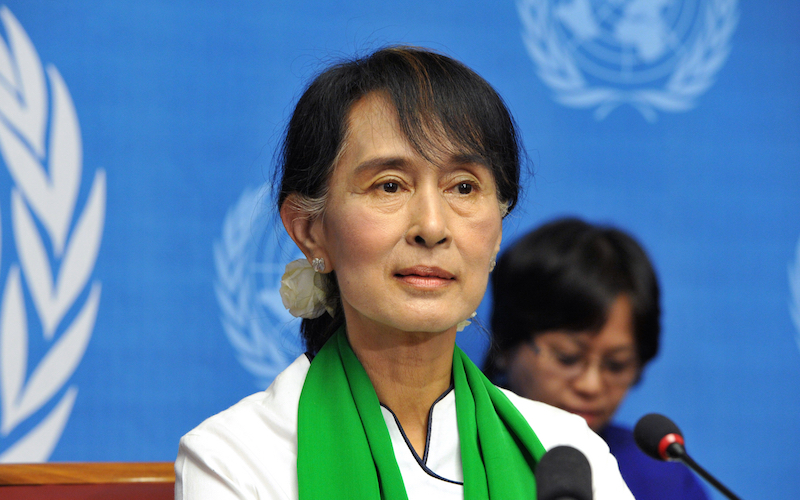
Suu Kyi’s Kachin Dilemma
A peaceful transition to democracy after five decades of military rule has been a path fraught with hurdles for the Aung San Suu Kyi government. After coming to power in early 2016, some of the challenges her party faces are rooting out corruption, firmly establishing the rule of law, ensuring ethnic equality and so on. Illegal jade mining and smuggling in Kachin state is one such challenge that needs to be tackled by her government sooner than later. The revenues from the jade trade fund the Kachin conflict. Thus, in order to weaken the rebels, illegal jade trade needs to be ended.
However, jade mining is a complex issue in many ways. To begin with, it is based in a territory which is politically beyond the reach of the Burmese government. The first conflict in Kachin against the Burmese military began in 1961 and has been going on in one way or another ever since.
The Kachin Independence Organization (KIO) has been demanding autonomy and ethnic representation from the Burmese government. To make matters worse, ceasefire agreements and peace talks between the two parties have failed on numerous occasions.
Secondly, no official record of the number of companies and individuals involved in jade mining exists. According to the report by Global Witness, many companies are run by the country’s military leaders and some others receive funding from China. These military leaders not only make billions of dollars from jade mining but presently control the security forces and key industries in the Burmese government. Suu Kyi cannot oppose them even after being in power for a few years.
Lastly, China has been playing both sides – the rebels and the military – by providing them with money and weapons. Suu Kyi is considered to be more pro-West and wants to steer Myanmar away from Chinese influence. However, it will not be easy as Myanmar’s economy heavily depends on Chinese investment. China has the largest Foreign Direct Investment in Myanmar and Suu Kyi needs this money to bring about the development which she has promised her people. As a result, she cannot take any action which will upset the Chinese leadership.
Suu Kyi-led National League for Democracy’s (NLD) dilemma in the Kachin conflict is thus, evident. She had promised the people of Myanmar that her government will crackdown on the widespread smuggling in Kachin. In addition, it would introduce rules and a taxation system so that the government is no longer deprived of the billions of dollars in tax revenue. However, the landslide and blast in the jade mines in the last week of May have led many to believe that peace and rule of law will not see the light of the day anytime soon.
The landslide caused by huge piles of unstable mining-waste killed 12 and injured 11 scavengers. A week before that, a blast by unknown assailants destroyed the offices of two jade-mining companies. This followed new clashes between the national military and rebel groups. It shows that Suu Kyi has not been able to make her opinion count in the decisions taken by the military. Moreover, she has not even put in place any concrete rule of law plan for the problems in Kachin state. Although Suu Kyi assumed office as the Leader of Myanmar only in April 2016, she has been the President of NLD party and was the Leader of the Opposition for almost four years. During this period, she should have developed a blueprint of the actions she intended to undertake in Kachin.
Furthermore, she has remained silent on many critical issues concerning the ethnic communities in Kachin. During her campaign, when asked about her opinion on the controversial Myitsone dam, she dodged the question by saying that she did not have any details about the contract between the Burmese and the Chinese governments. Likewise, she did not answer the questions on the possibility of self-administration in Kachin state. The locals there were very disappointed by her lack of response. There is nothing surprising in her attitude, though. She had maintained her silence even when questions about the attacks against the Rohingya community were raised earlier.
Suu Kyi needs to understand that such an approach is not going to help her or her party anymore. Before the elections, many ethnic minorities believed she represented only a particular ethnic community. She had to woo the ethnic communities to gain their support by emphasizing that she represented all the people of Myanmar. Inaction and ignorance of the issues affecting these ethnic communities will just strengthen their earlier beliefs and push them towards ethnic leadership of the Kachin Independence Organization. This will neither solve the Kachin conflict nor will it aid in the country’s transition to democracy.

